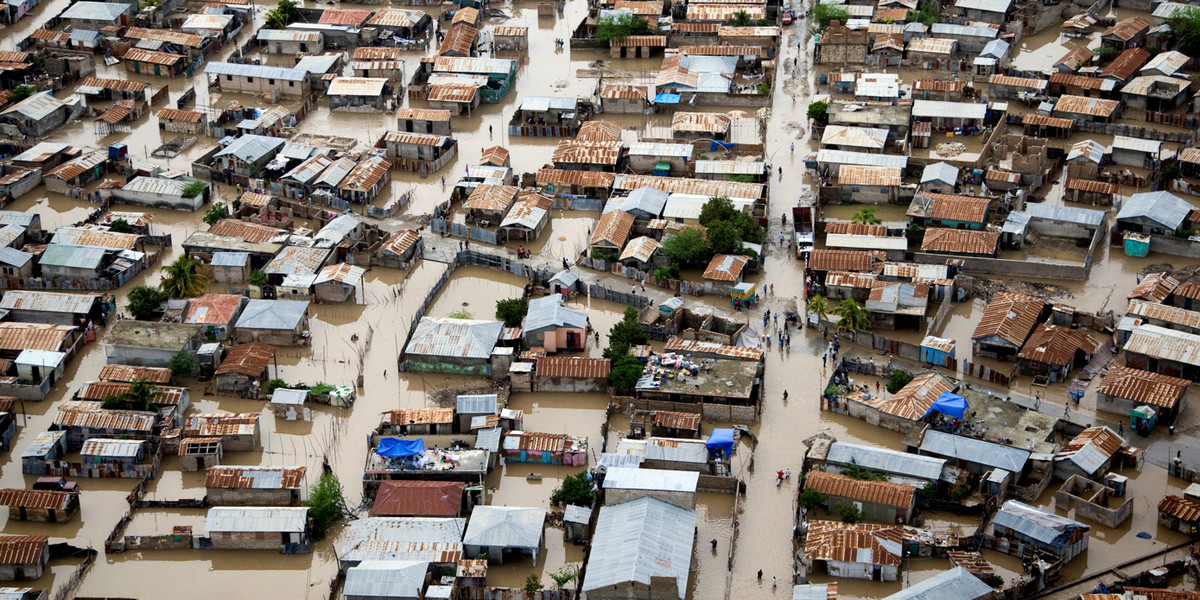CIDSE Press release following the release of the report on “Impacts, Adaptation and Vulnerability” by the International Panel on Climate Change.
The new Intergovernmental Panel on Climate Change (IPCC) report, backed by solid scientific research, is crystal clear: impacts of human-made climate change, fueled mainly by the burning of fossil fuels, are rapidly intensifying. These impacts are experienced by people, animals and plant species virtually all over the planet and are already highly severe. According to the report, in the future, all the inhabited regions of the planet will be affected by extreme weather events such as droughts, floods and heatwaves. Without urgent and transformative measures to limit global warming to 1.5°C, adaptation will become costlier, inefficient and in some cases impossible. Losses and damages will also increase and some of the impacts will be irreversible.
There is an important element of global justice in this bleak scenario. “The poorest people, such as some of the communities we work alongside to in Africa, are not responsible for the climate crisis, but they are already suffering the most. They are also the least financially equipped to deal with climate impacts. Thousands of communities in several parts of Africa like Madagascar where I come from are experiencing very erratic climate, alternating droughts and typhoons, creating so much havoc on many people’s lives, especially the poor and most vulnerable. Many of them are reaching the limits of adaptation.” said Father Germain Rajoelison from SECAM, the Symposium of Episcopal Conferences of Africa and Madagascar.
CIDSE’s emphasis is that there are concrete solutions to global problems if humanity acts together and in real solidarity. The IPCC echoes CIDSE’s view on strategies that should drive climate change adaptation policies such as inclusive and fair policies to contain the climate crisis and prioritizing risk reduction, equity and justice to effectively build climate resiliency.
“CIDSE embraces the call of acting together and in solidarity for the planet. It is our responsibility to care for our common home, respect its peace and healthy environment, and use its resources wisely and with care. This requires a constant global effort, but we are not afraid of a big endeavour if we do it together and if nobody is left behind. In concrete terms, solidarity should take the form of a common but differentiated responsibility approach.” said Josianne Gauthier, CIDSE Secretary-General.
As a faith-based organisation, CIDSE encourages the ecological conversion needed for taking care of the planet and calls for transformative approaches such as agroecology – which the IPCC reports identifies as an effective adaptation option – to play a key role in adapting to climate change, helping to preserve and restore ecosystems while bringing mitigation co-benefits. Agroecology has indeed demonstrated to support the realisation of the right to food while fostering thriving communities and biodiversity.
CIDSE reiterates its call for increased climate finance and, in particular, calls on governments to step up their climate financing responsibilities, revise and update their national climate targets (NDCs), and expedite efforts to successfully phase out of all fossil fuels to keep global warming below 1.5°C. The latest IPCC report clearly underlines that the existing climate adaptation finance is insufficient to respond to the worsening impacts of climate change in developing countries.
NOTES TO THE EDITORS:
See here CIDSE’s report (2021): Improving civil society’s limited access to the green climate fund.
Read here the IPCC report on “Impacts, Adaptation and Vulnerability” by the International Panel on Climate Change.
MEDIA CONTACT: Valentina Pavarotti, CIDSE Communications Manager, Pavarotti(at)cidse.org
Cover photo: Hurricane Tomas Floods Streets of Gonaives, Haiti. Photo ID 465289. 06/11/2010. UN Photo/UNICEF/Marco Dormino

